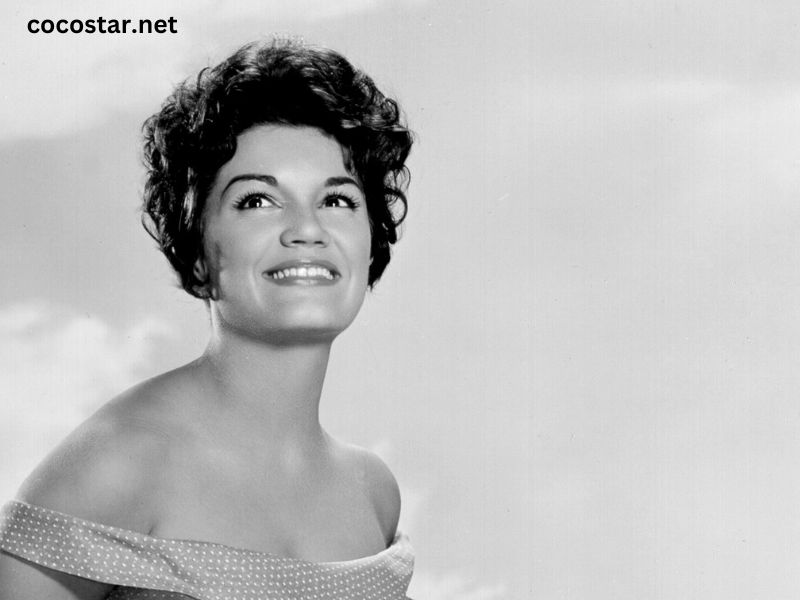Connie Francis, one of the most iconic voices of the 20th century, has faced her fair share of challenges both in her personal life and her health. Best known for her string of hits during the late 1950s and early 1960s, including songs like “Who’s Sorry Now?”, “Stupid Cupid”, and “Where the Boys Are,” Francis’ life has been a testament to resilience in the face of hardship. Over the years, she has encountered several health problems, both physical and mental, which have impacted her career and personal life.
This article delves into the health problems Connie Francis has experienced throughout her life, how they affected her career, and the strength she has shown in overcoming them.
Early Career and Initial Success
Born Concetta Rosa Maria Franconero on December 12, 1937, in Newark, New Jersey, Connie Francis displayed an early talent for music. She became a household name in the late 1950s and 1960s, rising to fame as one of America’s top pop singers. Her voice, a unique blend of power and emotion, resonated with listeners across the globe, and her songs dominated the airwaves. However, behind the success, Connie faced emotional and physical challenges that would later have a profound impact on her health.
Struggles with Mental Health
One of the most significant health battles Connie Francis faced was with her mental health. In the early stages of her career, the pressure to perform and maintain her status as a top-selling artist took a toll on her emotional well-being. However, the most challenging period in her life came after a traumatic event in 1974 when she was sexually assaulted in a hotel room. This incident caused deep psychological trauma, from which it took her years to recover.
After the attack, Connie developed a fear of public spaces and performing. Her career, which was on a high trajectory, came to an abrupt halt. She withdrew from the public eye, and her mental health deteriorated. For years, she battled with depression and post-traumatic stress disorder (PTSD), conditions that were not as widely understood or treated during that time as they are today.
Connie was candid about her struggles with mental health, bringing attention to the importance of acknowledging and addressing emotional and psychological trauma. It was a difficult period, but her courage in speaking about her experiences helped reduce the stigma surrounding mental health, especially among public figures.
Bipolar Disorder Diagnosis
In the years following her assault, Connie was diagnosed with bipolar disorder, a mental health condition that causes extreme mood swings, including emotional highs (mania or hypomania) and lows (depression). Bipolar disorder can be incredibly debilitating, affecting both the personal and professional lives of those who suffer from it.
Connie’s bipolar disorder, combined with the trauma of her assault, led to numerous hospitalizations and further delayed her return to the stage. It wasn’t until the late 1980s that she began to manage her condition with a combination of therapy and medication, which helped her regain some stability in her life.
Her openness about bipolar disorder and her advocacy for mental health awareness have been commendable. She has spoken in interviews about the importance of proper treatment, sharing her journey to recovery in hopes that others might find solace in knowing they are not alone.
Physical Health Challenges
While mental health has been a significant part of Connie Francis’ story, she has also faced various physical health problems that impacted her career and personal life.
In 1977, just a few years after the traumatic assault, Connie underwent nasal surgery to correct a condition that affected her voice. For a singer, one’s voice is everything, and this surgery caused her immense anxiety. After the surgery, she found that her voice had changed, and for a time, she believed she might never sing again. Thankfully, with time and proper care, she was able to regain her singing ability, though the experience left her emotionally drained.
In addition to her vocal issues, Connie also experienced a series of health problems related to aging. These included complications from arthritis, which caused her significant physical pain and made performing difficult. Arthritis, a common condition among older adults, causes inflammation of the joints, leading to stiffness, swelling, and pain. For someone like Connie, who was used to the physical demands of performing, arthritis became a major obstacle. Despite this, she pushed through, showing remarkable resilience by continuing to perform when possible.
Overcoming Obstacles and Returning to Music
Despite these health challenges, Connie Francis has always displayed a remarkable capacity for resilience. After years of battling her mental and physical health issues, she returned to performing in the 1980s. Her return was met with excitement from her long-time fans, who had eagerly awaited her comeback.
Connie’s return to the stage was not just a testament to her vocal talent but also her ability to overcome adversity. She managed to reignite her career, releasing new music and performing for adoring audiences around the world. While her voice had changed somewhat due to age and the surgery, her emotive delivery and connection to the audience remained as strong as ever.
In recent years, Connie has limited her public appearances due to age-related health issues, but she remains a beloved figure in the world of music. Her legacy as a trailblazing female artist who broke barriers in the 1950s and 1960s continues to inspire new generations of musicians.
Advocacy for Mental Health Awareness
One of the most impactful aspects of Connie Francis’ later life has been her advocacy for mental health awareness. After publicly discussing her struggles with bipolar disorder and depression, Connie has become an advocate for better mental health care and support for those who suffer from these conditions.
She has spoken at various events, participated in interviews, and used her platform to raise awareness about the importance of mental health treatment. Connie’s story has helped shine a light on the challenges that come with mental illness, particularly for those in the entertainment industry, where the pressure to maintain a public image can often exacerbate underlying conditions.
Conclusion
Connie Francis’ life story is one of triumph over adversity. Despite facing numerous health challenges, including mental health issues like depression, PTSD, and bipolar disorder, as well as physical problems related to her voice and aging, Connie has remained a symbol of strength and resilience.
Her career, marked by extraordinary success in the world of pop music, has been intertwined with personal struggles that would have ended the careers of many. Yet, Connie has persevered, using her experiences to not only continue performing but also advocate for mental health awareness.
Today, while she may no longer be performing as frequently as she once did, Connie Francis remains an influential figure in music and mental health advocacy. Her voice, both in song and in the conversation around mental health, continues to resonate with fans and advocates alike.
Connie’s journey serves as an inspiration, showing that even in the face of profound difficulties, it is possible to find hope, healing, and a way forward. Her story reminds us that mental and physical health challenges can affect anyone, even those who seem to have it all, and that the road to recovery, while difficult, is always worth pursuing.



